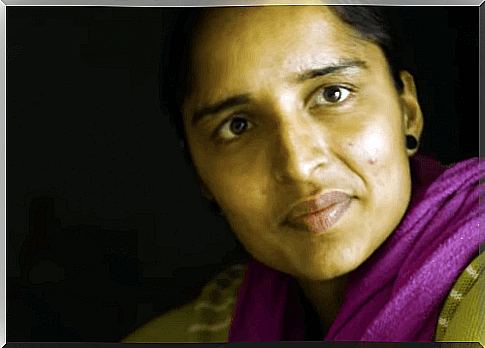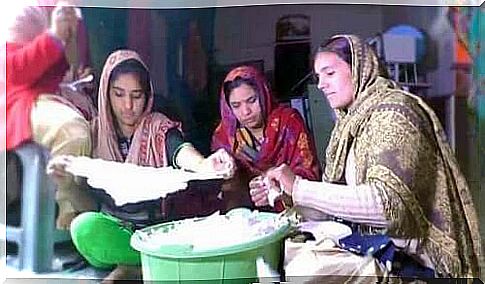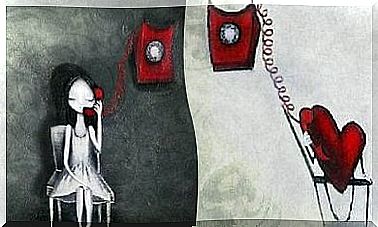Period. End Of Sentence: Revolution In India

In this article, we’re going to talk about a great documentary that recently premiered on Netflix. period. End of Sentence tells us about the customs, stereotypes, stigmas and taboos that women in India still face.
period. End of Sentence is about a taboo that many movements in India fight for: menstruation. Though it is considered normal in the western world, it is still one of the biggest hurdles faced by a woman in India. Often in an unthinkable way.
Even though it is one of the most fundamentally feminine aspects, people have hidden, criticized and demonized it for centuries. The good news is that in India, a group of women have found a way to change the world’s views on something as intrinsically feminine as menstruation.
period. End of Sentence
period. End of Sentence is set in a rural area of Hapur, India, near Delhi. There is no doubt a female revolution going on in India. However , the countryside still clings to the customs of the past.
However, some traditions ensure that these people are still slaves to their past. For example, women are still condemned to a domestic life and to enter into marriage. They also drop out of school early to become mothers, without being able to have a different future.
Recently, some women from a small community in Hapur have started a silent revolution against the stigma that is deeply rooted in their culture. Menstruation in Indian culture is taboo. Today, women have decided to lay the foundation for their awakening.
Sanitary pads have only recently become available in the Indian market. Since you can only find it in big cities, sanitary pads are practically out of reach for most women due to the high price.
The Pad Project has turned an old abandoned house in Hapur into a factory where women of all ages make their own sanitary pads and sell them in shops.
In doing so, they have found a way to solve a problem that, in most cases, has been a major obstacle to most women’s goals.
They have set up a partnership where women receive economic compensation for their work. For many, it is the first time in their lives that they receive compensation.
Menstruation and dropping out of school
Probably the biggest problem posing the stigma around menstruation for women in India is that many women still drop out of school once they get their first period.
In fact, this is an ancient tradition that marks the point at which women begin their period of fertility. Therefore, they have to give up everything else to get married and have children. The people of India still consider menstruation as embarrassing.
Many women consider themselves unclean during menstruation, which prevents them from entering temples and praying there. This happens even in temples dedicated to female deities. That is the absurdity of this stigma.
While many women in India find a way to escape early marriage through their education, many drop out of school themselves because of menstruation.
Often they don’t have enough places to change. They all use rags or pieces of cloth that they bury after use. Again, this is something they cannot do comfortably or privately at school.

The Path Project and Women in India
The idea for the Pad Project originated in the city of Los Angeles. This non-profit organization raised the necessary funds for the first 99% biodegradable sanitary napkin machine set up by the Hapur Women’s Association.
The economic strength it has given these women has been significant. It has helped to provide an income for these women and their families. However, it has also had two important side effects.
- First, the women have earned the respect of the men in their community.
- Second, it has helped fund the education of younger women.
Their brand of sanitary pads is called Fly. They chose this symbolic name because of the purpose of their project: to finally let women in India spread their wings and fly.
Overcoming narrow-mindedness
The stigma surrounding menstruation in India is synonymous with ignorance. The documentary Period. End of Sentence shows young men from Hapur who do not know what menstruation is. Some think it is a disease that affects more women than men.
For many of the men in the area, this project has enabled them to stop being ignorant and to know the feminine and masculine world a little bit better. The women of the Pad Project hope one day to remove the stigma surrounding menstruation.
A project so simple and accessible caught everyone’s attention. It sparked a peaceful revolution and gave women hope that age-old ignorance and stereotypes will end.







